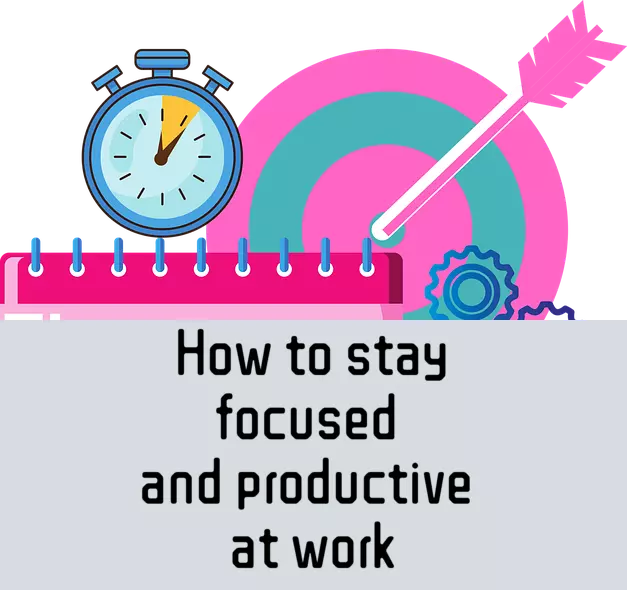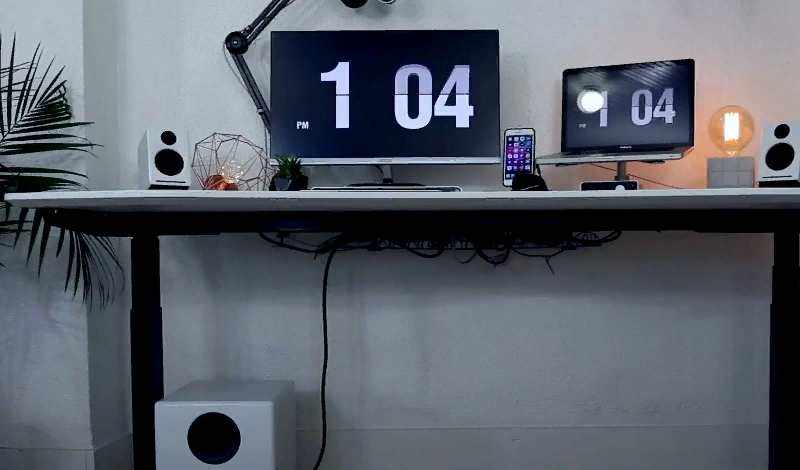If you want to understand how to better focus on your work and be more productive, I’ll tell you how to do it.
Evaluating your performance at work is not always easy. You may have been working hard for years without knowing how well you’re doing. But if you want to know whether you’re making progress toward your goals, you need to take stock of what you’ve accomplished.
1. Focus on what’s important
Do not get distracted by irrelevant information and focus on only what matters right now. You cannot do everything at once, so make sure you prioritize tasks accordingly. If you have a lot of things to do, then start with the most urgent ones first.
2. Take breaks
Take regular breaks throughout the day to give yourself time to think and recharge. A good place to take a break is outside, where you can clear your head and enjoy some fresh air.
3. Set goals
Set realistic goals for each project and set deadlines for them. Setting goals helps you stay motivated and makes you feel accomplished.
4. Don’t procrastinate
Procrastination means delaying something until later without any concrete plan of action. Procrastinating causes anxiety and stress, and wastes valuable time. Instead, try to complete your tasks as soon as possible.
5. Keep track of progress
If you want to keep track of your progress, use a task management software. Using a tool like Trello or Asana will help you organize your projects and keep track of your deadlines.
6. Prioritize
Prioritizing is about deciding which tasks matter the most and putting them at the top of your list. Make sure you don’t spend too much time on low-priority tasks.
7. Use tools
Tools can help you manage your time effectively. There are many apps out there that can help you accomplish a variety of tasks. Try using these tools to stay organized and on schedule.
Productive at Work – How to Evaluate Yourself?
If you don’t know where you stand, you won’t know what to do next. So before you start evaluating yourself, ask yourself these questions:
- Do I feel proud of my accomplishments?
- Am I satisfied with my job performance?
- Have I achieved my goals?
- Is my work fulfilling?
Productive at Work – How to Evaluate Others?
You might think that evaluating others would be easy. After all, they’re right in front of you! But it doesn’t mean you should just assume that everyone else is doing their best. In fact, you probably shouldn’t even assume that people are doing their jobs correctly.
Productive at Work – How to Evaluate Yourself at Work?
The first step in evaluating yourself is to figure out what you’re good at and what you’re bad at. If you’re good, great! If you’re bad, you’ll want to fix that.
Productive at Work: What to Look Out For?
There are two kinds of evaluations: objective and subjective. Objective evaluations look at facts about your work, while subjective evaluations look at how you feel about your work.
Focusing on work: key benefits
1. Focusing on tasks that you enjoy doing increases productivity and efficiency. If you’re not enjoying what you’re doing, you’ll find yourself wasting time and energy on things that aren’t worth your attention. When you focus on tasks that you enjoy, you’ll feel happier and more motivated to get them done. You may even become more productive than if you were working on something that you don’t care about.
2. Focusing on tasks helps you stay organized. If you have a lot of loose papers lying around, it’s hard to keep track of everything. But if you have a system in place where you file away your paperwork, you won’t lose anything. You’ll know exactly where to go to find any documents related to a project.
3. Focusing on tasks makes you more creative. Creative people tend to be focused on their work. They think about how they could improve their projects and make them better. They look at problems from different angles and try out different solutions until they come up with something unique.
4. Focusing on tasks keeps you accountable. People who do tasks that they enjoy are often much more likely to finish them. They feel good about themselves and want to prove to others that they can complete their work. They’re less likely to procrastinate and put off finishing their projects.
5. Focusing on tasks gives you peace of mind. If you’re worried about getting a job done, you might start feeling anxious. But if you’re confident that you’ve got a plan and that you’re going to succeed, you’ll feel calmer. And when you’re calm, you’re more likely to concentrate on the task at hand.
6. Focusing on tasks lets you relax. When you’re stressed out, your body produces cortisol. Cortisol causes your muscles to tense up and your heart rate to increase. These changes in your physiology cause you to feel tired and irritable. So when you’re relaxed, you’re able to handle stressful situations better.
7. Focusing on tasks reduces anxiety. Anxiety is a natural human emotion that we all experience from time to time. We worry about our future, about what other people think of us, and about whether we did the right thing. When we’re anxious, we can’t think clearly and we’re more prone to making mistakes.
8. Focusing on tasks boosts confidence. When you’re confident about the outcome of a project, you’re more likely than someone else to take risks and try new ideas. That means you’re more likely to come up with innovative solutions to problems.
9. Focusing on tasks builds self-esteem. When you’re proud of the work you do, you feel good about yourself. You’re more likely to achieve goals and set higher standards for yourself.
10. Focusing on tasks promotes creativity. Creativity is about coming up with new ideas and solving problems in ways that no one else has thought of before. When you’re focused on a task, you’re more likely able to generate new ideas.
11. Focusing on tasks inspires you. When you’re inspired, you’re excited about what you’re doing. Your enthusiasm encourages others to follow along and participate in the project.
12. Focusing on tasks motivates you. Motivation comes from many different sources, including social pressure, fear of failure, and intrinsic motivation. When you’re motivated, you’re more likely engage in activities that you enjoy and that help you accomplish your goals.
13. Focusing on tasks is fun. When you’re having fun, you’re more likely engaged in the activity. You’re more likely able to think creatively and solve problems in novel ways.
14. Focusing on tasks teaches you patience. Patience is a virtue that everyone should strive to develop. When you practice patience, you learn to wait patiently for opportunities to present themselves. In turn, you’re more likely be successful in achieving your goals.








What about rest? After a day’s work, the body needs proper rest. It is important not to overload the brain with a flood of information in the form of games, movies, TV shows: in this case the brain does not rest, but continues to analyze the incoming information, hence – overload. The best rest after work will be a walk: the longer the better.
Healthy, restorative sleep also plays an important role in concentration. Recent studies have shown that more than half of people (53%) do not get enough sleep, which affects concentration during waking hours. It is important to get 7-9 hours of sleep on a regular basis to achieve maximum performance.
How to concentrate while working? Here’s my method!
While working, eliminate provoking factors to which you may be distracted. Install special browser extensions that temporarily block access to entertainment sites and social networks.
Turn off notifications on your gadgets, tell your colleagues and loved ones that you’re working on an important project, and ask them not to distract you. Set a limit on the use of entertainment apps on your smartphone: this way you will get rid of the desire to update your information feed. According to a recent study, a lot of workers spend about four hours a day on mobile apps. If you temporarily give up using your smartphone while working or studying, it can improve efficiency.
I will say this – try to work on one task until you get it done. Multitasking is great, but it’s also the reason why you can’t focus on your business. The more tasks you try to do at once, the more resources your brain needs to get to the heart of the problem.